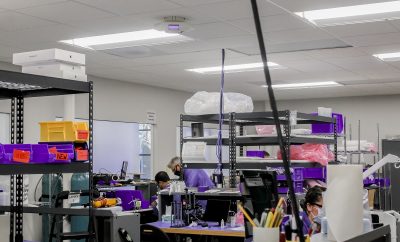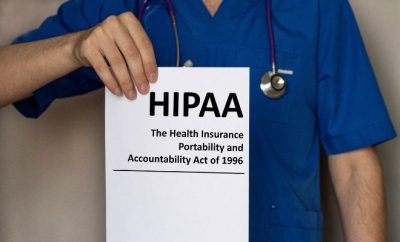
News
The Dangers of the Anti-Vaccine Movement
In 2000, measles was declared to have been completely eradicated in the United States, a feat considered to be a marvel of modern medicine. Flash forward to now, the U.S. is seeing a strong resurgence of measles, with an estimated 555 individual cases just in the last four months. This has even lead to health officials in several states declaring a public health crisis.
How did we get here? The anti-vaccine movement has a long history in the United States, but we are now beginning to see the effects of people forgoing getting vaccinated against highly infectious, yet completely preventable diseases.

There is overwhelming support among the scientific and medical communities that vaccines are a safe and effective practice in preventing deadly infectious diseases. They are considered to be one of the most impactful advances humans have ever made, saving the lives of countless millions. Despite a figurative treasure trove of evidence supporting the safety of vaccines, the anti-vaccine movement continues to gain support.
Skeptics of vaccines point toward several arguments that support their avoidance of vaccines. One of the favored points brought to the table by anti-vaxxers is that vaccines are not safe, citing a now debunked study that said vaccines cause autism. Another argument describes vaccines as being a massive conspiratorial plot by big pharma to profit off people by peddling dangerous immunizations.
The surge of anti-vaccine supporters has only been emboldened by celebrity endorsers like Jenny McCarthy, who has become a sort of figurehead for the movement. McCarthy has long admonished people of what she perceives as the danger of vaccinating your children, strengthening the platform for the anti-vaccine movement.

Now, we are beginning to see the deadly effects of those who refuse to get their children vaccinated. Just last month, the CDC released a case report detailing a 6-year old boy who nearly died after contracting tetanus, a completely preventable disease thanks to vaccinations. As of this month, 20 states have reported cases of measles, including California, and nearly none of the cases had been vaccinated against measles.
Vaccine refusal is a direct contributor to the rise of outbreaks, which is exemplified in the fact that infectious diseases like measles are known to spread through populations where rates of anti-vaccine supporters are high. The number of anti-vaccine supporters has risen substantially thanks to social media and the power to band together with like-minded people, essentially creating echo chambers where users only hear and see the information that further their own beliefs. The movement is strongly centered along with a belief in moral outrage and oppression led by the government and media, fueling a conspiracy style of thinking among supporters.
Thankfully, social media platforms like Facebook plan to take steps to combat the spread of anti-vaccine information. Content that contributes to misleading medical advice pertaining to anti-vaccine supporters will be flagged and removed after reviewal. This also extends to ads that contain false facts about vaccines.
With the number of infectious disease cases rising among anti-vaccine circles, states are struggling to keep up with dealing with the consequences. The CDC reports that in California, health officials spent more than $4 million dealing with an outbreak that occurred in 2014. That figure is expected to dramatically increase as the number of cases climbs.
The anti-vaccine movement poses a significant threat to the overall progress we have made globally in eradicating infectious diseases. Today, only 85% of the worlds infant receive the first dose of treatment, with even fewer receiving the second dose. This figure is well short of the 95% that the World Health Organization says is needed to prevent outbreaks. Going forward, if the anti-vaccine movement continues to grow and gain support, the U.S. is at risk of further outbreaks.





0 comments